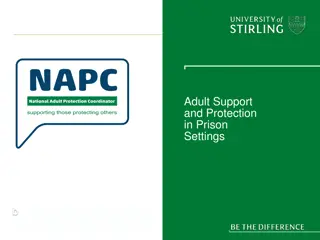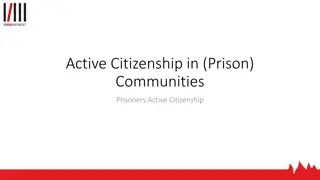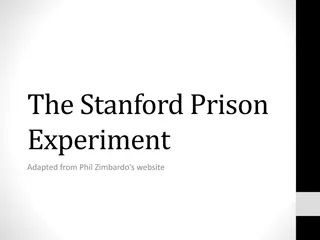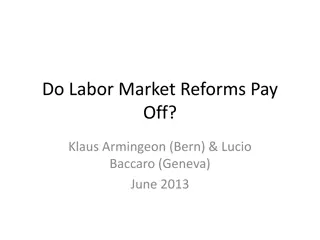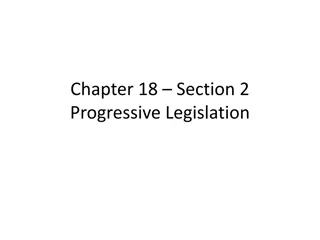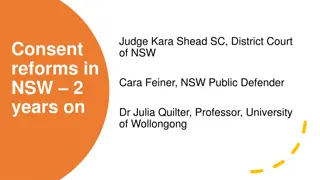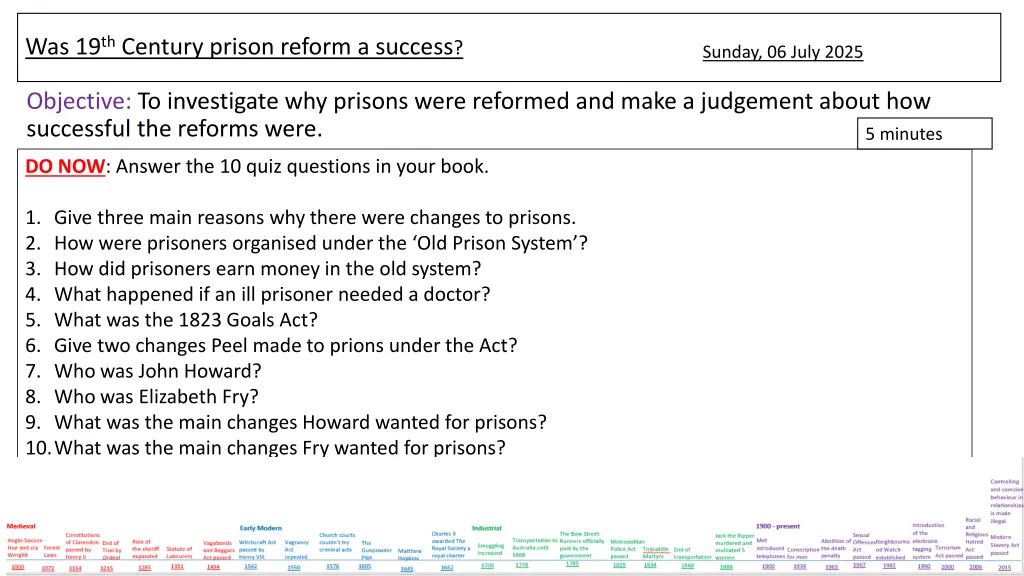
19th Century Prison Reform: Success Overview
Explore the historical background and key figures involved in 19th-century prison reform, analyzing the reasons for changes, organizational structures, Acts passed, and reforms proposed by influential individuals like John Howard and Elizabeth Fry. Discover the impact and success of these reforms in improving prison conditions and rehabilitation efforts.
Download Presentation

Please find below an Image/Link to download the presentation.
The content on the website is provided AS IS for your information and personal use only. It may not be sold, licensed, or shared on other websites without obtaining consent from the author. If you encounter any issues during the download, it is possible that the publisher has removed the file from their server.
You are allowed to download the files provided on this website for personal or commercial use, subject to the condition that they are used lawfully. All files are the property of their respective owners.
The content on the website is provided AS IS for your information and personal use only. It may not be sold, licensed, or shared on other websites without obtaining consent from the author.
E N D
Presentation Transcript
Was 19thCentury prison reform a success? Sunday, 06 July 2025 Objective: To investigate why prisons were reformed and make a judgement about how successful the reforms were. 5 minutes DO NOW: Answer the 10 quiz questions in your book. 1. Give three main reasons why there were changes to prisons. 2. How were prisoners organised under the Old Prison System ? 3. How did prisoners earn money in the old system? 4. What happened if an ill prisoner needed a doctor? 5. What was the 1823 Goals Act? 6. Give two changes Peel made to prions under the Act? 7. Who was John Howard? 8. Who was Elizabeth Fry? 9. What was the main changes Howard wanted for prisons? 10.What was the main changes Fry wanted for prisons?
1. Give three main reasons why there were changes to prisons. Imprisonment became the normal method of punishing criminals. Prisons became important as the reasons for punishment changed. The huge increase in prisoners led to the government taking over the whole prison system. 2. How were prisoners organised under the Old Prison System ? All prisoners were put together. Hardened criminals mixed with first time offenders, lunatics, women and children. 3. How did prison wardens earn money in the old system? They were unpaid. They had to earn their money by charging prisoners a fee for anything they wanted. 4.What happened if an ill prisoner needed a doctor? They had to pay to see a doctor, if they had any money.
5. What was the 1823 Goals Act? It was an Act to improve conditions in prisons and help reform criminals. 6. Give two changes Peel made to prions under the Act? Fresh water supply and adequate drainage must be supplied. Prison wardens and governors must be paid. All prisoners should have proper food and no pet allowed. Prisoners should be in separate groups so hardened criminals are not mixed with first timers. Male and female prisons are to be separate. There should be female wardens in women prisons. All prisoners should go to the chapel Magistrates have to visit prisons in their area to make sure they re up to standard.
7. Who was John Howard? He was a penal reformer. 8. Who was Elizabeth Fry? She was a Quaker with a strong religious background, believing God was in everyone and they can be reformed. 9. What was the main changes Howard wanted for prisons? Healthier accommodation Separation of prisoners A decent diet and better prison guards. 10. What was the main changes Fry wanted for prisons? For Quakers to visit prisons and offer help Set up prayer groups for women to give some religious guidance. Set up a school for children in Newgate prison, teaching them useful skills like sewing and knitting.
Class reading Page 84 - 85 5 minutes
Your task Read page 86 15 minutes Complete the worksheet to record information about prison reformers. John Howard Elizabeth Fry Prison Reformer Prison Reformer Wrote The state of Prisons in England and Wales (1777) Worked for improvements at Newgate Prison especially for women (1813) Extension: 1. How do you think the backgrounds of Howard and Fry influenced their work in reforming prisons? 2. Why do you think the work of individual reformers are important in the changing of crime and punishment?
Think pair - share How did prisons change? 1. What caused the changes in prisons? Individuals Society (attitudes and ideas) Government Religion War Economics 1777 John Howard s books, State of Prisons in England and Wales was published. 1815 Gaolers were paid out to taxes, ending the charging of fees to prisoners. 1855 The first prison inspectors were appointed. 1839 General rules for all prisons were provided by the government. 1842 Pentonville prison was built. It was intended to be a model prison for others to copy, keeping prisoners in almost isolation from each other. 1857 The government ended the use of hulks prisons in Britain. 1864 Penal Servitude Act ensured that prisoners faced the harshest possible conditions. Corporal punishment was reintroduced in prisons. 1878 The government took control of all prisons. 2. How did these changes improve prisons? 10 minutes
Your task 10 minutes 1. Read the box on humanitarianism on page 86 and: Write a definition of it and explain the part it played in changing prisons. 2. Make your own copy of the diagram on page 86. Higher: next to each of the three circles, can you give an example? page 86 CHALLENGE: How does government involvement in this period compare with that in Medieval or Early Modern England?
Plenary: 5 minutes Overall, how important do you think individuals like Fry and Howard were in changing prisons? 1777 John Howard s books, State of Prisons in England and Wales was published. 1815 Gaolers were paid out to taxes, ending the charging of fees to prisoners. 1855 The first prison inspectors were appointed. 1839 General rules for all prisons were provided by the government. 1842 Pentonville prison was built. It was intended to be a model prison for others to copy, keeping prisoners in almost isolation from each other. 1857 The government ended the use of hulks prisons in Britain. 1864 Penal Servitude Act ensured that prisoners faced the harshest possible conditions. Corporal punishment was reintroduced in prisons. 1878 The government took control of all prisons.





